REgional Activities Africa
01.08.2023 State-owned enterprises equipped with tools to encounter corruption
Accra (Ghana)Read more14.06.2023 Ghana menyelenggarakan lokakarya negosiasi etis untuk pengusaha perempuan
Accra (Ghana)Read more08.06.2021 Interregional Exchange on Compliance between Africa and Asia
Africa and Asia, onlineRead more
Country Profile Ghana
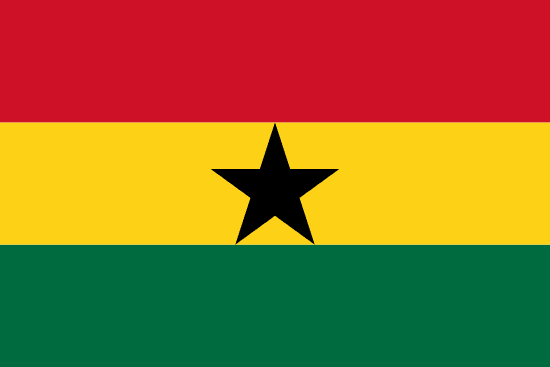
Geographical and demographic information: Ghana is in West Africa and shares borders with Togo, Burkina Faso, and Ivory Coast. It has an estimated population of around 34 million people and is classified as a low-middle-income country.
Economic outlook: Ghana's medium-term economic outlook is positive due to increased productivity from oil and gas exports. However, in the short term, the country faces economic challenges. GDP growth has shown fluctuations from 2017 to 2022.
Corruption: Corruption is a significant challenge in Ghana and hampers development. In the Corruption Perception Index (CPI) of 2022, Ghana ranked 72nd out of 180 countries. The prevalence of bribery in both the public and private sectors is notable, affecting various aspects of the economy, including small and medium-sized enterprises (SMEs).
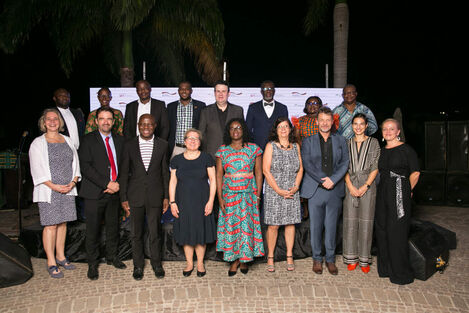
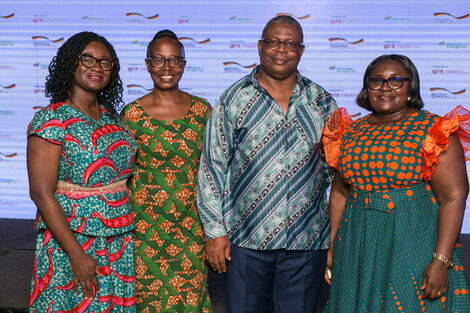
Anti-corruption efforts: Ghana has ratified various international conventions against corruption and established anti-corruption bodies such as the Commission on Human Rights and Administrative Justice (CHRAJ) and the Economic and Organised Crime Office (EOCO). Initiatives like the National Anti-Corruption Action Plan (NACAP) and the Office of the Special Prosecutor aim to combat corruption.
Alliance for Integrity in Ghana: The Alliance for Integrity has been active in Ghana since 2015, promoting best practices, collective action, and integrity in the economic system through collaborations with different sectors, including the private sector, public sector, civil society, and academia. In Ghana, the Alliance for Integrity has active working groups focusing on awareness creation and capacity building.
REGIONAL ACTIVITIES in GHANA
01.08.2023 State-owned enterprises equipped with tools to encounter corruption
Accra (Ghana)Read more14.06.2023 Ghana menyelenggarakan lokakarya negosiasi etis untuk pengusaha perempuan
Accra (Ghana)Read more
at a Glance
| Population: | 34 million | GDP per capita: | 2.363.3 US$ (2021) |
| Form of government: | Presidential democracy | TI CPI rank: | 72 out of 180 (2022) |
| GDP: | 77.59 billion US$ (2021) | Score: | 43/100 (2022) |
ALLIANCE FOR INTEGRITY IN GHANA
Its office is situated in Accra, where most headquarters of companies and organisations can be found. By working closely with existing initiatives, the initiative is committed to promote best practice examples, to foster collective action and to increase integrity in the economic system.
A multi-stakeholder Advisory Group Ghana has been established in 2016. It comprises representatives of the following organisations:
- Private sector: Allianz Insurance Co. Ltd. Ghana, Association of Ghana Industries, Ecobank Ghana, Ghanaian-German Economic Association, Ghana Chamber of Commerce & Industry, Guinness Ghana Breweries Limited
- Public sector: Commission on Human Rights and Administrative Justice, Public Procurement Authority, Ghana Enterprises Agency
- Civil society: Ghana Anti-Corruption Coalition, Ghana Integrity Initiative
- International Organisations: Global Compact Network Ghana, United Nations Office on Drugs and Crime (UNODC)
- Academia: Ghana Institute of Management and Public Administration
Active Working Groups in Ghana:
- Awareness Creation
- Capacity Building
Country Profile nigeria
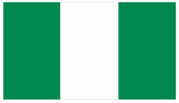
Nigeria, located in West Africa, has a population of around 223.8 million people and is classified as a low middle income country by the United Nations Industrial Development Organization (UNIDO).
According to the World Bank, high oil prices since 2021 did not boost the performance of the Nigerian economy as it has been the case in the past. It rather weakened the macroeconomic stability, amidst declining oil production, a costly petrol subsidy which is consuming a large share of gross oil revenues, exchange rate distortions, monetization of the fiscal deficit, and high inflation. The GDP growth declined significantly from 421.74 billion and saw the fifth consecutive year of decreasing GDP rates (from 14 per cent in 2011 to 3.6 per cent in 2016). In 2021, agriculture contributed around 23.36 per cent to Nigeria’s GDP, 31.41 per cent came from industry, and 43.79 per cent from the services sector. With around 5.8 per cent in 2022, Nigeria has a relatively low year to year unemployment rate. However, the World Bank estimates that some 80.4 per cent of the employment is generated in the informal sector. Out of this, about 82 per cent are women.
Nigeria, like many other African countries, is battling corruption, a major setback of development. In 2022, Transparency International’s Corruption Perception Index ranked Nigeria 150th out of 180 countries. According to the Global Corruption Barometer 2019, a survey conducted by Transparency International and the Afrobarometer, corruption in the public sector is still a major problem in Nigeria. About 43 per cent of Nigerians believe that corruption has increased over the past year. Most perceive police officials (69 per cent), judges (51 per cent) and elected officials (53 per cent) to be corrupt; and nearly half of Nigerians (44 per cent) who had contact with key public services say they had to pay a bribe at least once to receive services, get support, or avoid a problem.
The Anti-Corruption legal regimes in Nigeria have supported the government’s efforts in the fight against corruption despite the numerous corruption-related challenges the country is facing. The government has ratified the international legal frameworks such as the United Nations Convention Against Corruption (UNCAC), the African Union Convention on Preventing and Combating Corruption, and the ECOWAS Protocol on the Fight Against Corruption (ECOWAS Protocol). These frameworks were adopted at the regional and sub-regional levels.
Moreso, there are both government and private institutions as well as civil societies in the country, that seek to fight against corruption and restore dignity and transparency, especially in public organisations. One of such institutions is the Economic and Financial Crimes Commission (EFCC), which was established in 2004 with the sole objective of fighting corruption in Nigeria. The EFCC Establishment Act was enacted in 2002 and amended in 2004. It empowers the commission to combat financial and economic crimes through prevention, investigation, prosecution and penalization and enforcement of other laws and regulations related to economic and financial crimes. In addition, the Independent Corrupt Practices and Other Related Offences Act 2000 (ICPC), a national anti-corruption commission that seeks to prohibit and prescribe punishment for corrupt practices and other offences and established Nigeria’s Anti-Corruption Commission. The Commission is responsible for investigation, prosecution, and prevention of offences of corruption. This includes receiving and investigating complaints from members of the public on allegations of corrupt practices and in appropriate cases, prosecuting the offenders.
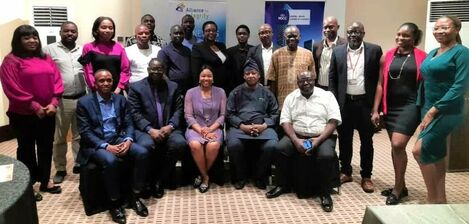
REGIONAL ACTIVITIES in NIGERIA
at a Glance
| Population: | 223.8 million inhabitants | GDP per capita: | 2,237 US$ (2022) |
| Form of government: | Presidential democracy | TI CPI rank: | 150 out of 180 (2022) |
| GDP: | 477.39 billion US$ (2022) | Score: | 24/100 (2022) |
Alliance for integrity in nigeria
The Alliance for Integrity has been active in Nigeria since 2021 and its office is in Lagos, where most headquarters of companies and organisations can be found. By working closely with existing initiatives, The Alliance for Integrity Nigeria is committed to promote best practice examples, to foster collective action and to increase integrity in the economic system.
The multi-stakeholder Advisory Group Nigeria has been established in 2022. It comprises of representatives of the following organisations:
- Private sector: BASF West Africa, AIICO Insurance Plc.
- Public sector: Lagos State Employment Trust Fund
- Civil society organisations: Accountability Lab
- Business chambers/associations: Nigerian-German Chamber of Commerce (NGCC), Delegation of German Industries and Commerce (AHK)
Active Working Groups in Nigeria:
- Start-up Working Group
- SMEs Working Group
Country Profile South Africa

South Africa is located at the southernmost part of Africa, with a population of around 59.9 million people and is classified as an upper-middle income country.
In 2021, the service sector contributed around 63.02% to South Africa’s GDP, industry contributed 24.5% and 2.47% came from the agricultural sector. With around 29.8% in 2022, South Africa has a relatively high unemployment rate. The informal sector in South Africa has a smaller share of 20% of total employment in the country.
State services, socio-economic development, investor confidence and job creation are heavily impacted by the level of corruption in South Africa. The country ranked 72nd out of 180 countries in Transparency International's Corruption Perception Index of 2022. According to the Global Corruption Barometer 2019, a survey conducted by Transparency International and the Afrobarometer, 64% of South Africans believe that corruption is getting worse and since 2015 the overall bribery rate has more the doubled from 7% to 18% in 2019. The majority (70%) of South Africans say the government is performing badly in the fight against corruption.
But corruption is not only a public sector-problem in the country. The private sector also has its fair share of responsibility. While most of the country's large companies have been able to adapt to this environment, SMEs suffer in particular from high levels of bureaucracy combined with corrupt practices, making it increasingly difficult for them to integrate into supply chains.
In November 2020 the South African government adopted a National Anti-Corruption Strategy (NACS) 2020-2030. It aims to promote a whole-of-government and whole-of-society approach - involving public, private and civil society actors in the fight against corruption. The implementation of NACS is led by the Department of Planning, Monitoring and Evaluation which falls under the Presidency. Its ultimate objective is to set up mechanisms to combat corruption in the country, one of which is an independent National Anti-Corruption Agency.
This strategy envisions an ethical and accountable state, in which business and society is characterised by high levels of integrity and respect for the rule of law. It also sets out to promote an active citizenry that is empowered to hold leaders and organisations accountable, and where individuals are encouraged to act against corruption through whistleblowing mechanisms. The state and business procurement systems are intended to be run with high levels of integrity, efficiency, and effectiveness.
The South African Special Investigating Unit (SIU) is tasked and mandated to investigate corruption and bribery in connection with maladministration of state institutions, state assets and public money. The SIU was established in terms of the Special Investigating Units and Special Tribunal Act 74 of 1996. The Prevention and Combating of Corrupt Activities Act (PRECCA) is South Africa’s main anti-bribery and anti-corruption legislation.
REGIONAL ACTIVITIES in SOUTH AFRICA
08.11.2023 First Alliance for Integrity trainers trained in South Africa
Pretoria (South Africa)Read more
at a Glance
| Population: | 59.9 million inhabitants | GDP per capita: | 6,776.5 US$ (2022) |
| Form of government: | Presidential democracy | TI CPI rank: | 72 out of 180 (2022) |
| GDP: | 405.87 billion US$ (2022) | Score: | 43/100 (2022) |
Alliance for integrity in south africa
The endemic nature of corruption has been highlighted by the members of the multi-stakeholder partnership of the Transparency, Integrity and Accountability Programme (TIP), during a series of meetings in February 2023, marking the kick-start of the collaboration between TIP and the Alliance for Integrity. All parties agreed that corruption is not only a public sector problem in the country but that the private sector also has its fair share of responsibility. While most of the country’s big corporations have been able to navigate this context, SMEs are particularly suffering due to the amount of red tape combined with corrupt practices, making it increasingly difficult to integrate into supply chains.
To support those businesses and build their capacity to address corruption, TIP has integrated the network of the Alliance for Integrity to adopt, develop, and implement suitable formats and activities throughout the country. In addition to the “from companies to companies” (DEPE) training programme, focus will be on public-private dialogue formats with emphasis on public procurement as well as and the nexus of gender and anti-corruption.
Trainers
With our Train-the-Trainer programme we have already been able to qualify a considerable number of trainers.





